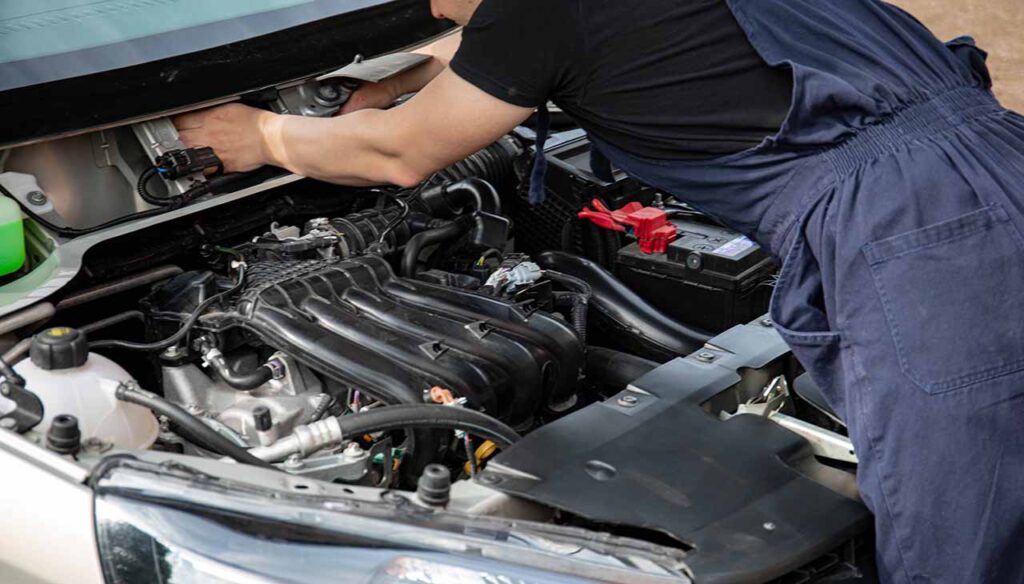Having your car towed can often be a stressful experience, especially if you’re not prepared and unsure of the process. Whether it’s due to a breakdown, an accident, or a parking violation, understanding what to expect can make the experience less daunting. In this guide, we’ll walk you through everything you need to know about getting your car towed, from when towing is necessary, to knowing your rights during the process, and tips on dealing with tow truck companies.
Reasons for car towing
Parking Violations
One of the most common reasons for cars being towed is parking violations. These may include parking in a no-parking zone, exceeding parking time limits, or obstructing traffic. It’s critical to adhere to posted parking regulations to avoid this inconvenience.
Breakdown or Mechanical Issues
Cars can also be towed due to a breakdown or mechanical malfunction. If your car can’t be driven safely or is causing traffic disruption, a tow truck may be necessary to move it to a garage or service center. Regular vehicle maintenance can help reduce the risk of unexpected breakdowns.
Accidents or Collisions
If a vehicle is involved in an accident or collision and is too damaged to be driven, it will likely need to be towed. Tow truck operators are often on the scene of accidents quickly, and they can transport your vehicle to a repair shop or other location as needed. It’s important to understand your car insurance policy and whether it covers towing services in these situations.
Types of towing services
There are several types of towing services available, each suitable for different circumstances and types of vehicles.
Flatbed Towing
Flatbed towing involves a truck equipped with a flatbed at the back where the car is securely fastened and transported. This method is considered extremely safe and is often used for luxury cars, large trucks, and SUVs.
Wheel-lift Towing
Wheel-lift towing utilizes a metal yoke that is hooked under the front or rear wheels of the car. The vehicle is then lifted from the ground by a hydraulic hoist, with one set of wheels remaining on the ground for towing. This method is less expensive than flatbed towing, but may not be suitable for all vehicles, especially four-wheel or all-wheel drive vehicles.
Hook and Chain Towing
Hook and chain towing is one of the oldest and most common methods of towing. It involves hooking and chaining the vehicle to the tow truck and hauling it away. Though effective, this method can cause damage to the car, particularly to the bumper and frame, and is typically not recommended for long-distance towing. This method is less commonly used nowadays in favor of less damaging methods like flatbed and wheel-lift towing.
What to do when your car gets towed
Stay Calm and Assess the Situation
First and foremost, it’s crucial to stay calm when you discover your car has been towed. Understand that this is a common occurrence, and there are protocols in place to help you retrieve your vehicle. Rather than panicking, take a moment to assess the situation to establish the most likely reason your car was towed.
Contact the Towing Company
Locate any posted signs in the area about towing, these signs usually contain the contact details of the local towing company. If you were present when the towing occurred, the tow truck operator should provide you with information on how to reclaim your vehicle. If not, and there are no signs, contact your local law enforcement non-emergency number, they usually have information on recent tows.
Gather Necessary Documents and Information
Before you head to the towing company’s lot, ensure you have all the necessary documents. This typically includes proof of ownership (like your vehicle’s title or registration), your driver’s license, and possibly proof of car insurance. Remember, each towing company may have different requirements, so ask what you should bring when you make initial contact.
Determine the Location of Your Vehicle
The towing company can confirm where your vehicle has been taken. Some cities have specific lots where towed vehicles are stored. Ensure you know the exact location before making your way there.
Paying the Towing Fees
Finally, be prepared to pay the towing and storage fees to get your car back. These fees can vary widely based on your location and the towing company. Some companies require payment in cash, so confirm the accepted methods of payment when you contact the company. Remember, the longer your car is stored, the higher the fees, so it’s advisable to retrieve your vehicle as soon as possible.
Preventive measures to avoid car towing
There are several preventive measures you can take to avoid having your car towed.
Understanding and Following Parking Regulations
Paying close attention to parking signs and regulations in the area where you plan to park your car can significantly reduce the chances of your car being towed. Be mindful of time limits, no parking zones, and streets where parking is periodically restricted due to cleaning or other factors.
Regular Maintenance Checks
Conducting regular maintenance checks can help prevent breakdowns or mechanical failures that could lead to your car being towed. Regularly servicing your car and keeping an eye on fluid levels, tire pressure, and other key indicators can help keep your vehicle in good working order.
Car Insurance
Ensure your car insurance is up to date, and understand what it covers. Some insurance policies include roadside assistance services, which could help you avoid a tow in the event of a breakdown or accident.
Safe Driving
Driving safely and responsibly can help prevent accidents and collisions that may necessitate your car being towed. This includes not only obeying traffic laws and regulations but also staying alert and aware while on the road.
Remember, while these tips can help prevent unnecessary towing, there will always be situations where towing is necessary for the safety of yourself and others. In these cases, understanding the towing process and your rights can make the experience less stressful.
